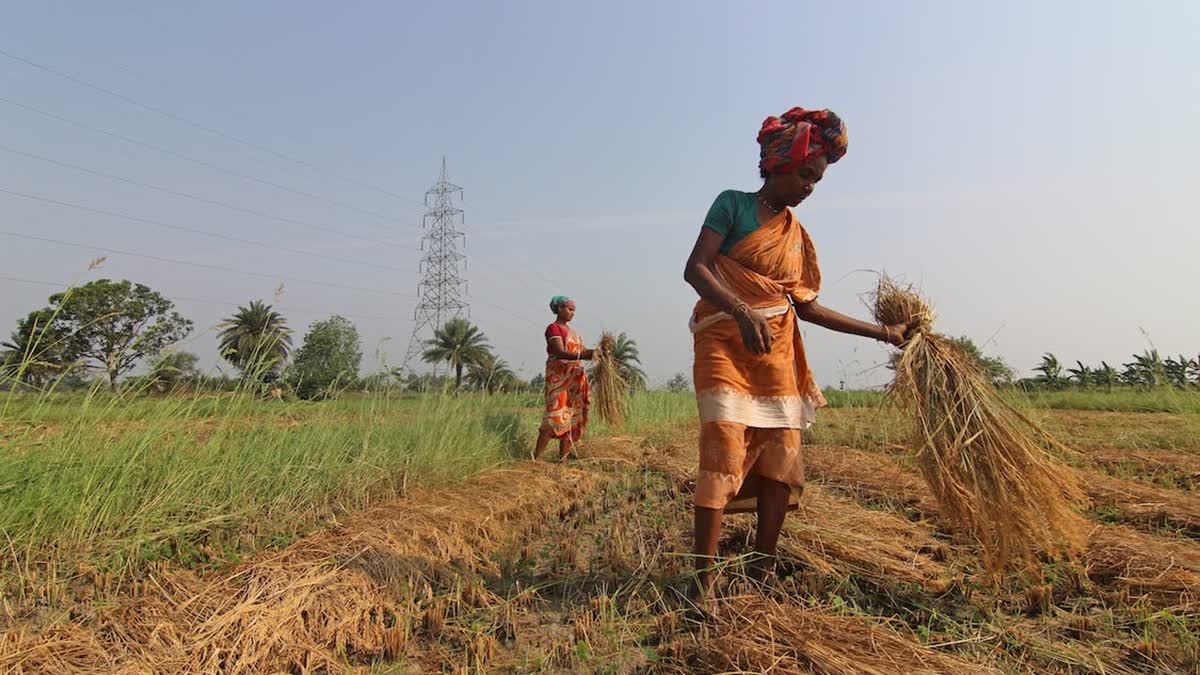Hyderabad: Former Indian Prime Minister Lal Bahadur Shastri, in the iconic proclamation of "Jai Jawan! Jai Kisan!" resonated with profound gratitude towards both the valiant soldiers who safeguard our nation's borders from external threats and the dedicated farmers who diligently nourish the land, extinguishing the relentless fires of hunger.
Shastri's sentiment was a poignant reminder of the indispensable role that farmers play in our society. They are not mere tillers of the land; they are the sentinels of our food security. In contemporary times, however, it is disheartening to observe the level of attention and assistance that the agricultural sector receives.
Despite the eloquent recognition of their significance, policymakers seem to have fallen short in understanding that a contented farmer is the bedrock of a prosperous nation. The Union Cabinet in a recent decision has raised the minimum support price for six crucial crops during the 2024-25 Rabi marketing season.
Notable increments include an additional Rs.150 per quintal for wheat. The minimum support prices for key crops have been revised, including a raise of Rs.115 for barley, Rs.105 for chickpeas, Rs.150 for sunflower, Rs.200 for mustard, and a substantial Rs.425 for toor dal, which depend on 15% imports. Nonetheless, the disconcerting reality persists.
The system of minimum support prices remains entrenched in a perennial pattern. A 29-member special committee aimed at strengthening this system has, thus far, failed to bring about substantial change. Critical issues such as underestimating the genuine cost of cultivation, disguising the disparities in expenses between states, neglecting inflation, and ignoring the spikes in fertilizer prices have gone unaddressed.
The Commission for Agricultural Costs and Prices (CACP) appears to have overlooked the escalating costs of seeds and labor, further underscoring the inadequacies of the current approach. Providing only partial financial relief while disregarding the holistic cost structure is but a cruel joke on our farming community.
The YK Alagh Committee had earlier called for a comprehensive overhaul of India's minimum support price system, recognizing the country's heavy dependence on agriculture. Criticism of the price determination method has been echoed by Professor Abhijit Sen's committee. The staggering cost incurred by Indian farmers from 2000 to 2017 due to a systemic failure in calculating fair agricultural prices is estimated at approximately Rs. 45 lakh crores.
Also read: Punjab: 'Rail roko' agitation continues on day 2; over 90 trains to be affected today
This immense loss underscores the urgent need for reform. Dr. Swaminathan's sage counsel, advocating the addition of 50% to actual farming costs and applying a fair price universally, remains unfulfilled. Glaring omissions persist, including factors such as land value, rent, and family labor contributions. The NITI Aayog's assertion that such comprehensive inclusion is impractical underscores the systemic shortcomings.
Furthermore, the Parliamentary Standing Committee has raised its voice against the Commission for Agricultural Costs and Prices (CACP) for neglecting labor wages during sowing, harvesting, and losses due to pests and rodents. These critical gaps must be addressed promptly. Additionally, it is imperative to extend comprehensive insurance coverage to all farmers, including tenants.
The current scenario, where support prices are announced for only 14 Kharif and six Rabi crops, along with two commercial crops (jute and coconut), across the spectrum of the more than seventy crops cultivated in the nation is untenable. Even though official data may suggest wider coverage, the Shantha Kumar Committee revealed that only 6% of paddy and wheat farmers benefit from the support price system.
This discrepancy leaves most farmers vulnerable to the vagaries of merciless market forces. They are unsure if their efforts will be adequately rewarded, particularly when it comes to cultivating pulses. This uncertainty forces the nation to shell out substantial foreign currency on annual imports, burdening consumers with rising prices. Farmers are not seeking charity; they simply expect fair compensation for their relentless toil.
The persistence of flawed policies that undermine their efforts will only accelerate the exodus of farmers seeking alternative livelihoods. In such a bleak scenario, the pivotal question arises: Who will feed the 140-crore people of this nation? A farmer's anguish is a curse upon the entire nation. Neglecting their welfare imperils our food security.
Failure to act promptly could very well be our Achilles’ Heel that jeopardizes the very foundation of our nation's sustenance.



